Source: www.hra-news.org
Translation by Iran Press Watch
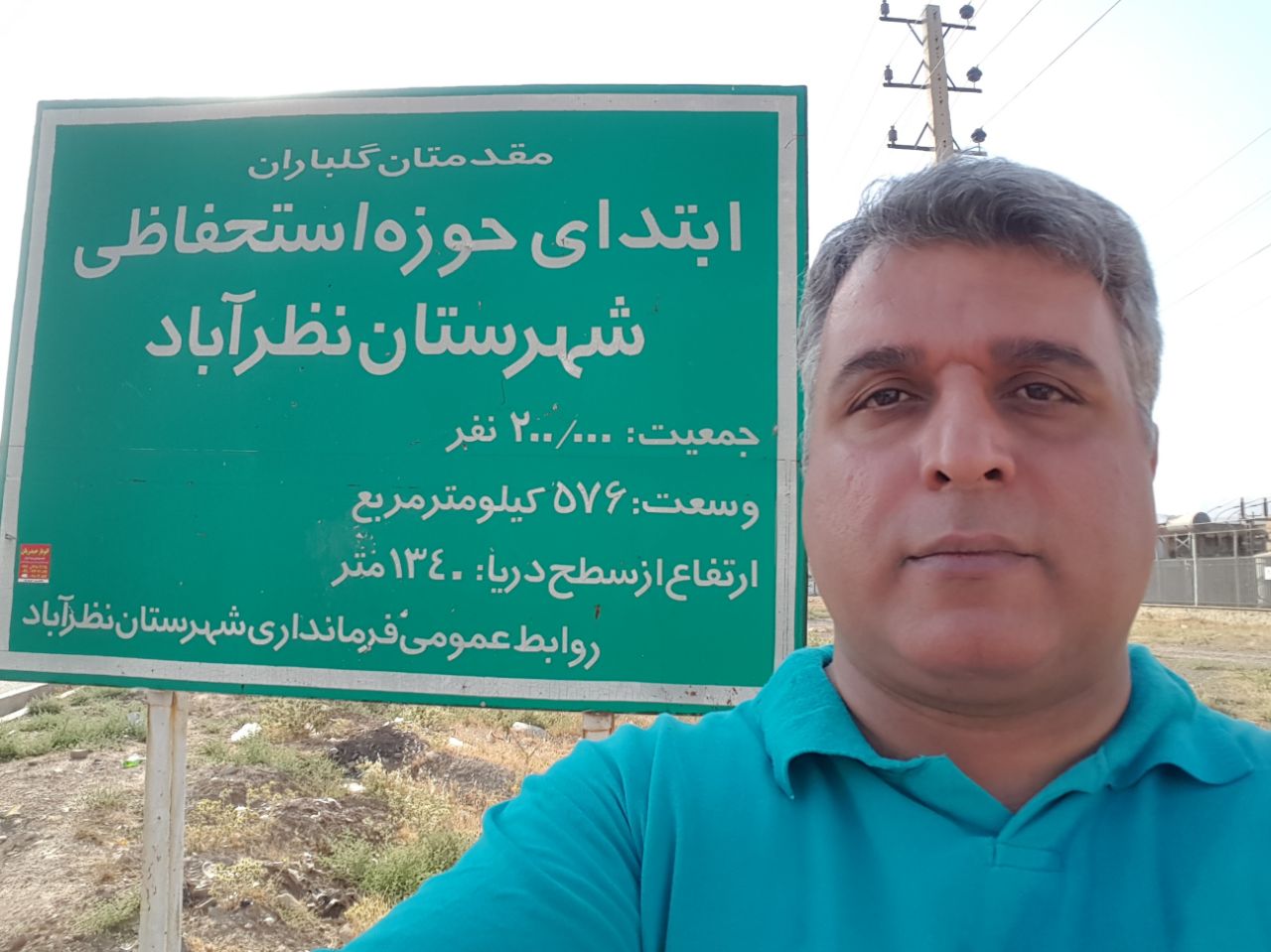
HRANA News Agency – Payam Vali, a Baha’i citizen whose optician business has been sealed by security agents for ten years, has had his most recent petition to reopen his business denied by the court.
Mr. Vali’s optician shop was originally sealed in a sweep by security agents that included four other Baha’i-owned optician businesses in Nazarabad. At the time, there were six optician businesses in Nazarabad. Only the five businesses owned by Baha’is were sealed.
In pursuit of legal remedy, Mr. Vali has made numerous attempts over the past ten years through the Appeals Court, the Supreme Court, the Court of Administrative Justice, as well as other government agencies, to no avail.
Mr. Vali’s last-ditch effort was submission of a petition to the Court of Administrative Justice requesting enforcement of Article 79 in accordance with the President’s Declaration of Civil Rights, in reconsidering the ten-year closure of his business. The petition was denied by the court on April 18, 2018. On May 13, 2018, a copy of the petition was submitted to the Islamic Human Rights Commission for review, and the case was once again sent to the Court’s directorate. On Sunday July 1, 2018, the petition was again denied by that court.
This repeated denial of Mr. Vali’s request and the petition by the Islamic Human Rights Commission of Iran, associated with the Judiciary, and following a decade of efforts in pursuit of justice, occur despite rulings by the judges in the Court of Administrative Justice against the illegal actions of entities such as the Security Council, the Public Places Supervision Office and the Health and Medical Network of the City of Nazarabad have been recorded. The aforementioned records have previously been published.
Regarding Mr. Vali’s repeated attempts to have the closure of his business reversed, a source close to this Baha’i citizen told the HRANA reporter, “On May 13, a letter was sent from the Human Rights Commission to the Court of Administrative Justice, regarding the review of Payam Vali’s file and enforcing Article 79 of the Court of Administrative Justice, in accordance with the President’s Declaration of Civil Rights. Based on this request, his case which had been closed in the current year, was returned to the Article 79 office of the Court of Administrative Justice. Reopening his case after the denial of the previous request was significant, but again at this phase, the petition of the Islamic Human Rights Commission, based on the President’s Declaration of Civil Rights was denied. What is clear is that the judicial institutions, including the Court of Administrative Justice, have no regard for the President’s Declaration of Civil Rights, and this was, in fact, proven with the denial of the Human Rights Commission’s petition, which was based on that Declaration.” The source had also previously told the HRANA reporter that the review of Payam’s case by Branch 10 of the Appellate Court of Administrative Justice was denied, while based on Article 98, Payam was notified of the ruling a year later.
According to Article 79 of the Court of Administrative Justice, if the Head of the Judiciary or the Chief Justice of the Court of Administrative Justice finds the final judgment of the other Court branches contrary to the rule of law or Shari’a law, the Chief Justice would declare the reason and refer the case for trial on merits to other branches.
Following the denial of the Commission’s petition by the Court of Administrative Justice on July 1, 2018, Mr. Vali sent a letter requesting a visit with the Court’s Director. The text of this his letter reads:
“I, Payam, the son of Ebadollah, have had my business in the city of Nazarabad shut down for the past ten years, solely for my belief in the Baha’i Faith, and unfortunately, for more than ten years, my case has been languishing in the Court of Administrative Justice. During this time, nine rulings were issued by the original Branches 3 and 5, and the General Board of the Court and the new Branch 27 of the Appellate Court. After ten years of follow-ups, as well as the petition by the Islamic Human Rights Commission, in violation of the laws and with conflicting votes, especially in branch 27 of the Appellate Court, at the end, my request based on the enforcement of Article 79 was also denied. Therefore, I request a visit in person with your Honor, as the high judicial officer.”
In 2017 Mr. Vali sent an open letter addressed to Iranian authorities regarding his situation. The letter, in part, stated, “On the occasion of the tenth anniversary of the sealing of my business, and having received the eleventh ruling, I request that the illegal sanctions of the Security Council be revoked, that the Health Network issue a permit for optometry for an optometrist of my choice, that the Public Places Supervision Office constitute the legal capacity, that the Trade Union Association and the related union renew the business license, and that my business premise be immediately unsealed, and the financial and emotional damages that have been imposed on me and my family during the past 10 years as a result of actions contrary to Articles 19 and 23 of the Constitution be determined.”
The Baha’is of Iran have experienced systematic persecution in Iran since the 1979 Islamic Revolution. Anti-Baha’i rhetoric has also led to violence. When Payam Vali was only 10 years old, his 12-year-old brother was murdered by an extremist mob from the village of Hussein Abad, Nazarabad Province. The mob had been incited by anti-Baha’i rhetoric and given to believe that it is permissible to shed the blood of Baha’is. It was Mr. Vali who found the body of his 12-year-old brother in a well.
Baha’i citizens in Iran are systematically deprived of freedoms related to religious beliefs. This systematic deprivation is in direct contradiction to Article 18 of the Universal Declaration of Human Rights, and Article 18 of the International Covenant on Civil and Political Rights (ICCPR), both of which Iran is signatory, “all persons have the right to religious freedom, the right to change their religion or belief, and the freedom to express their belief individually or collectively in public or private.”
Iran’s Constitution only recognizes Islam, Christianity, Judaism and Zoroastrianism, and does not recognize the Baha’i Faith as a religion. The Regime has used this to justify systematic denial and violation of the civil rights of the Baha’is over the years.
As the Iranian Regime has forced the Baha’i community to disband its administrative bodies, it is difficult to accurately assess the number of Baha’is in Iran. However, based on unofficial sources, it is believed there are over 300,000 Baha’is currently living in Iran.
Documents and attachments can be downloaded here:
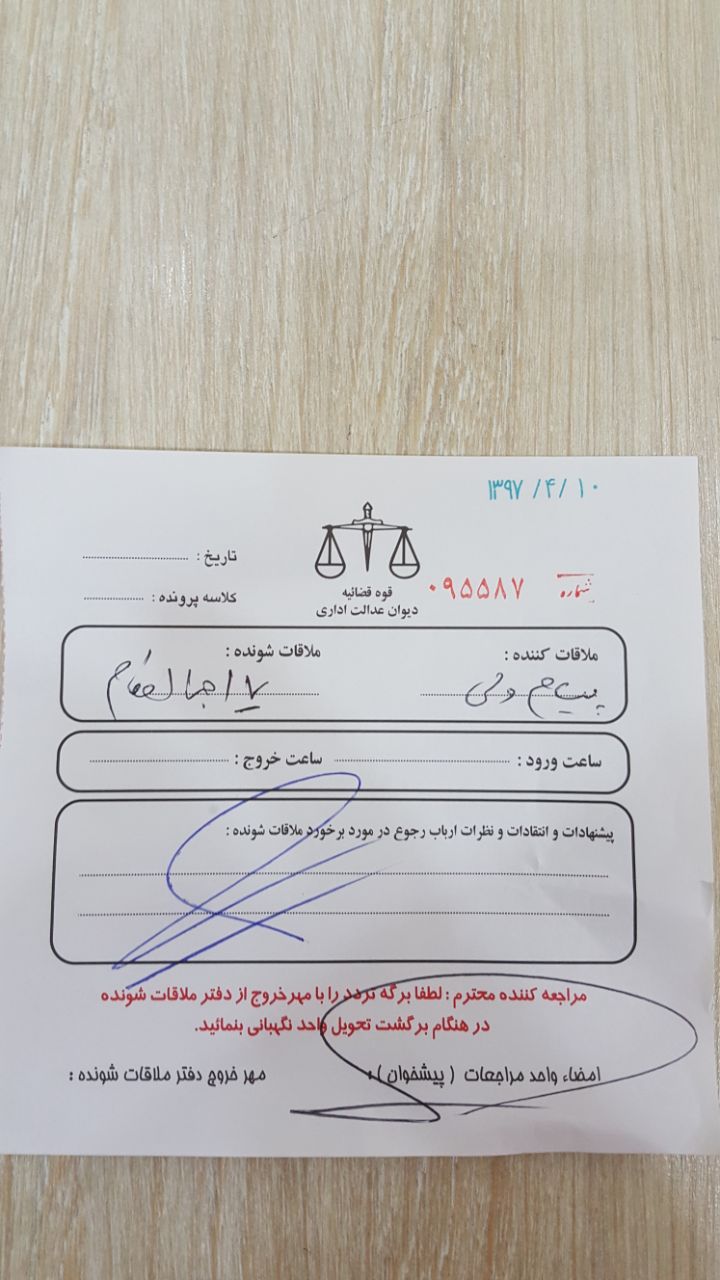
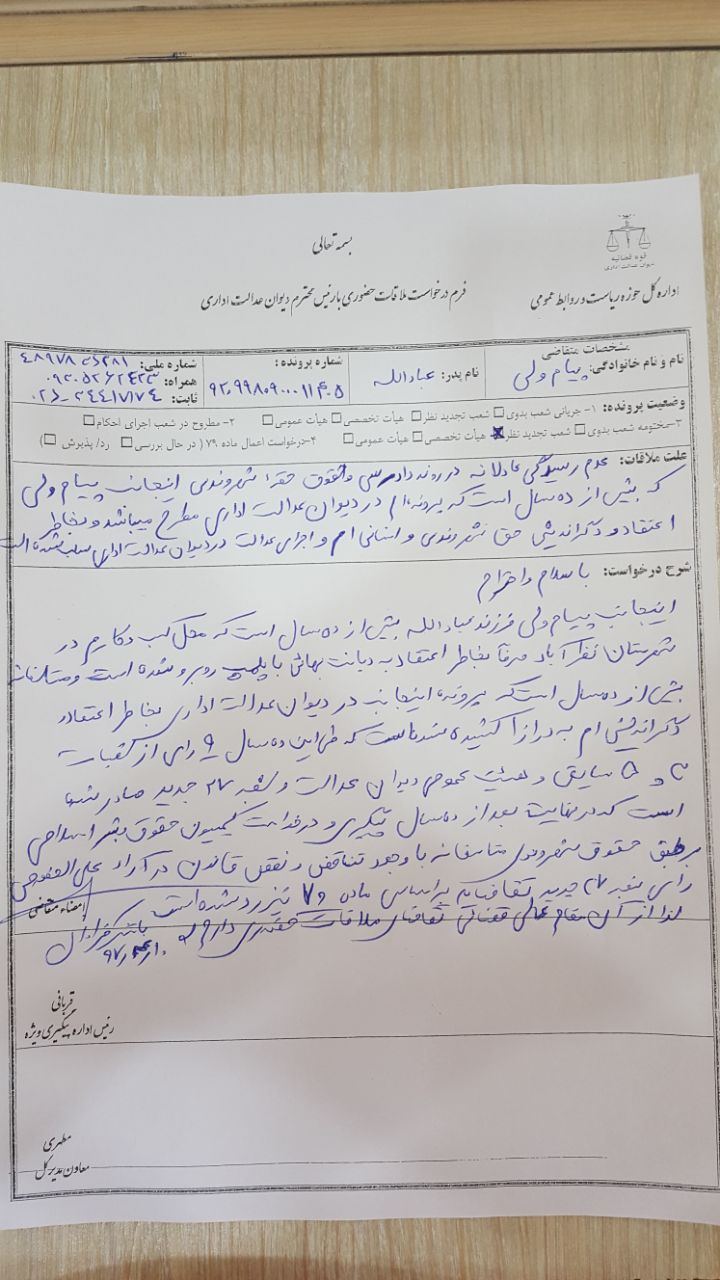
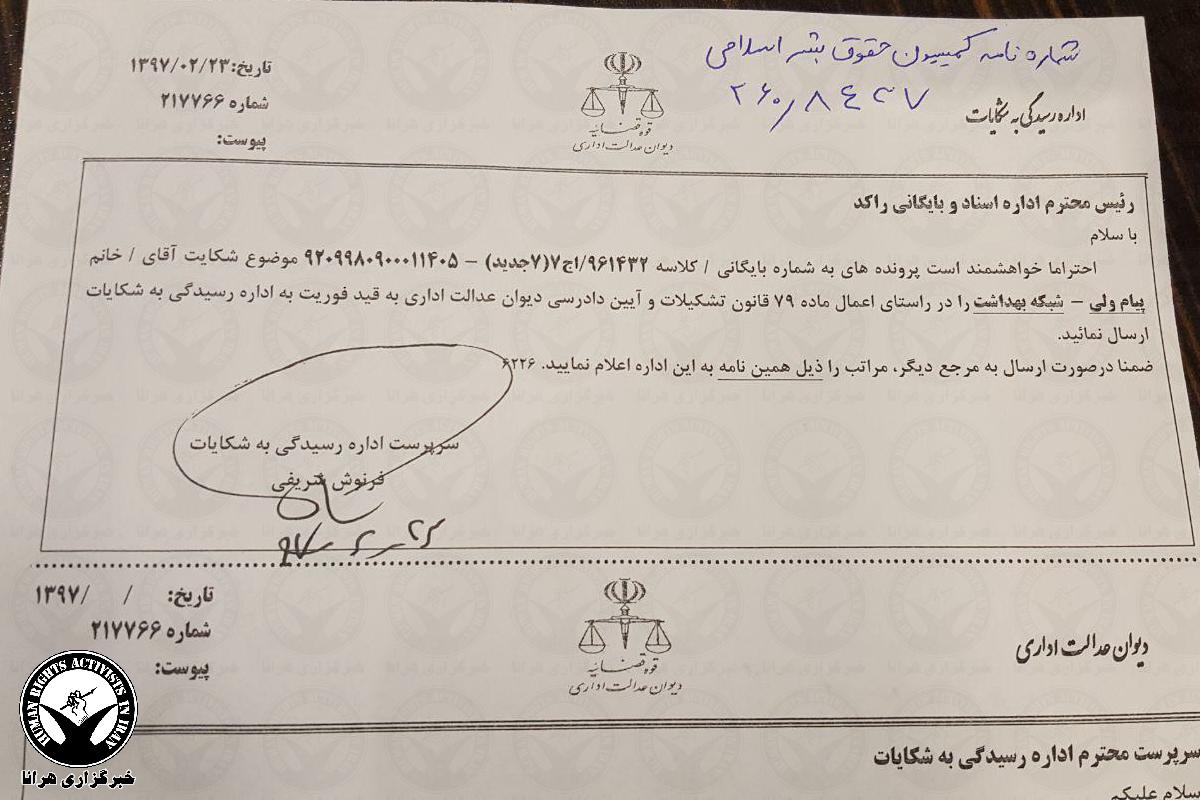
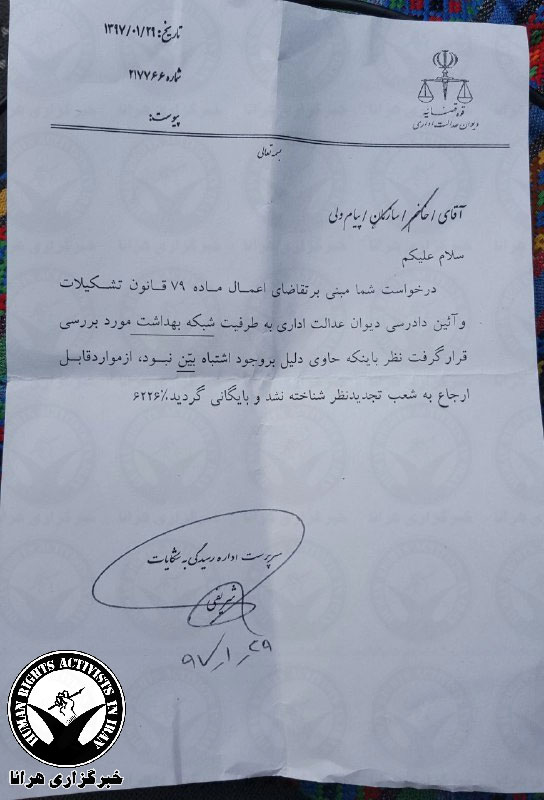
July 7, 2018 12:09 am
It is a great disappointment that the otherwise serious administrators of Court Branches 3 & 5, and now appellate Branch 27, should become involved in acts of mischief, out of line with the orderly expression of the Constitution, for the sole and unworthy purpose of suppressing the peaceful contributions of its hardworking, Baha’i citizens. It is plain that Baha’is have always acted in accord with their government, since each lives a life constantly under a microscope and no taint has ever been found, though plenty of blame has been invented.
Maybe some courageous judge will acknowledge that these spiteful acts only degrade the Court. Maybe an honorable judge will see that the responsible course is to restore these citizens to their rightful role in contributing to the economic wellbeing of their country, so that all may share the benefit under Article 14 which is explicit in the holy verse, 60:8, and so that the Court may be spared the consequence of disregarding that sacred verse’s implicit intent.